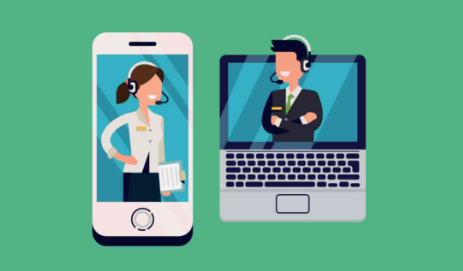Becoming Skilled at Being a Remote Medical Assistant

The role of an assistant has changed, particularly with the growth of telemedicine and remote healthcare services. Medical assistants support healthcare providers by managing the documentation of interactions, enabling physicians to dedicate more time to patient care. Developing proficiency as an assistant requires specific skills, a deep understanding of medical terminology, and proficiency in using various electronic health record (EHR) systems. This guide highlights the steps and abilities needed to succeed in this position.
Understanding the Position
A medical assistant collaborates with healthcare professionals virtually to ensure efficient documentation of patient encounters. Key responsibilities include transcribing histories, conducting exams, making diagnoses, updating patient records, and organizing medical documentation. Unlike on-site assistants, remote assistants carry out these tasks from locations, often from their own homes. This remote setup emphasizes the importance of being adept at communication and using software effectively.
Educational Background and Training
Having a solid educational foundation in health sciences is beneficial for those aiming to excel as assistants. Many assistants are medical students, nursing students, or individuals passionate about healthcare. While it’s not a requirement, having some background in anatomy, physiology, and medical terminology can lay a foundation. Specialized training programs tailored for scribes come highly recommended. These programs typically cover topics like terminology, electronic health record (EHR) systems, and HIPAA compliance, all vital aspects of the role. Moreover, gaining experience through on-the-job training supervised by scribes or healthcare professionals can significantly boost one’s skills.
Mastering Medical Terminology
A grasp of terminology is essential for any medical scribe. Being fluent in the language of medicine is critical to documenting patient interactions. Familiarity with terms related to anatomy, medical procedures, diagnoses, and medications is crucial for communication. Keeping up with literature and staying informed about new terms and abbreviations will help reinforce this knowledge.
Proficiency in Electronic Health Record (EHR) Systems
EHR systems play a role in managing information in today’s healthcare landscape. Remote medical scribes should be proficient in navigating EHR platforms. Having experience with used systems such as Epic, Cerner, and Meditech can offer an advantage. Practical training on these platforms in medical scribe programs can help scribes feel at ease with interfaces and functionalities.
Attention to Detail
Attention to detail is crucial in this position. Even a tiny mistake in documentation could have implications for care and legal matters. Skilled scribes must transcribe information and ensure all records are complete and adhere to standards. This includes verifying patient data’s consistency, ensuring all necessary fields are filled out, and seeking clarification from healthcare professionals when needed.
Time Management Abilities
Strong time management skills are another attribute of a medical scribe. Working in fast-paced settings, virtual scribes often need to document interactions in real-time or shortly after that. This demands a balance between speed and precision and the ability to prioritize tasks effectively. Establishing effective time management practices like using checklists and setting reminders can significantly boost productivity.
Communication Proficiency
Medical scribes need effective and clear communication. Operating virtually means communicating with healthcare providers via email, chat, or video conferencing. Competent scribes should be able to interpret instructions, ask clarifying questions when needed, and promptly address any concerns.
Continuous Learning
The healthcare landscape is constantly evolving, requiring scribes to adapt to changes. Scribes need to be dedicated to ongoing learning, whether it’s software updates, medical coding, or documentation procedure changes. This flexibility also involves acquiring skills and keeping up to date with advancements in telemedicine and healthcare technology.
The Significance of Maintaining Confidentiality and HIPAA Compliance
Confidentiality is an aspect of the field. Remote medical scribes handle patient data and must strictly adhere to regulations. They must be adept at protecting information, understand the consequences of data breaches, and follow best practices in data privacy. Regular training on confidentiality and compliance ensures that scribes uphold privacy standards.
Paving a Professional Path
The experience and expertise acquired as a scribe can lead to various career paths in healthcare. Many scribes transition into roles such as physician assistants, medical coders, or healthcare administrators. The position offers exposure to settings and can act as a stepping stone for further professional development.
Harnessing Technological Tools
Given the nature of the role, effectively utilizing technology is crucial for a virtual assistant for doctors. This includes being skilled with EHR systems and leveraging productivity tools such as task management systems, communication platforms, and cloud storage solutions. Understanding telemedicine software and troubleshooting technical issues can enhance a scribe’s efficiency and workflow.
Learning from real-life scenarios and case studies can provide insights into the life of a remote medical scribe. For example, understanding how scribes managed emergency consultations or adapted to telehealth guidelines during the COVID-19 crisis can offer important lessons.
To excel as a medical scribe, one needs technical expertise, solid medical knowledge, and excellent communication skills. Continuous learning and adaptability are crucial for success in this field. With the healthcare sector increasingly embracing advancements, there is likely a rising demand for remote medical scribes, making it an exciting and fulfilling career path for those passionate about healthcare and technology.





